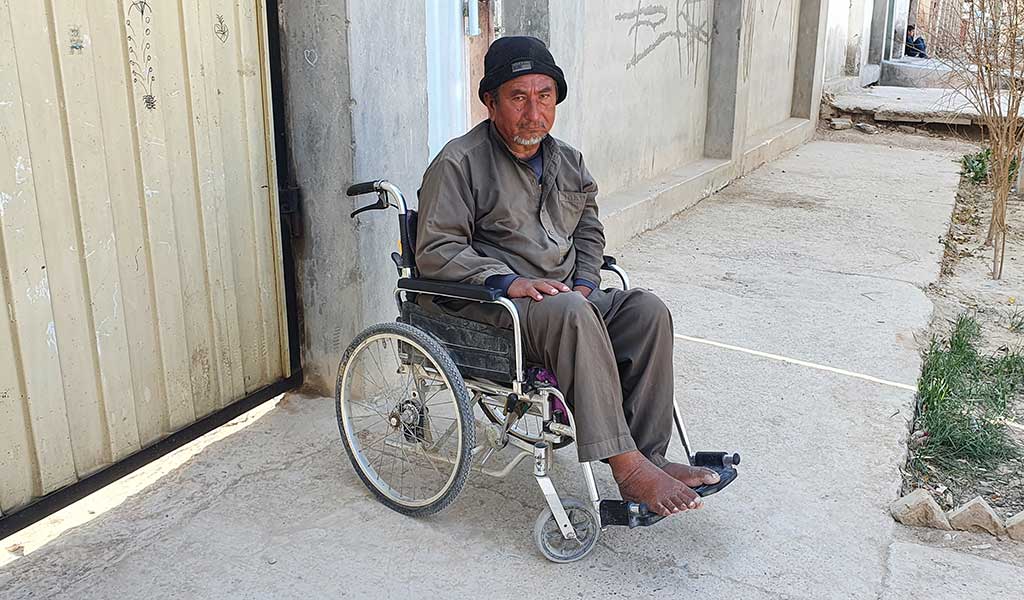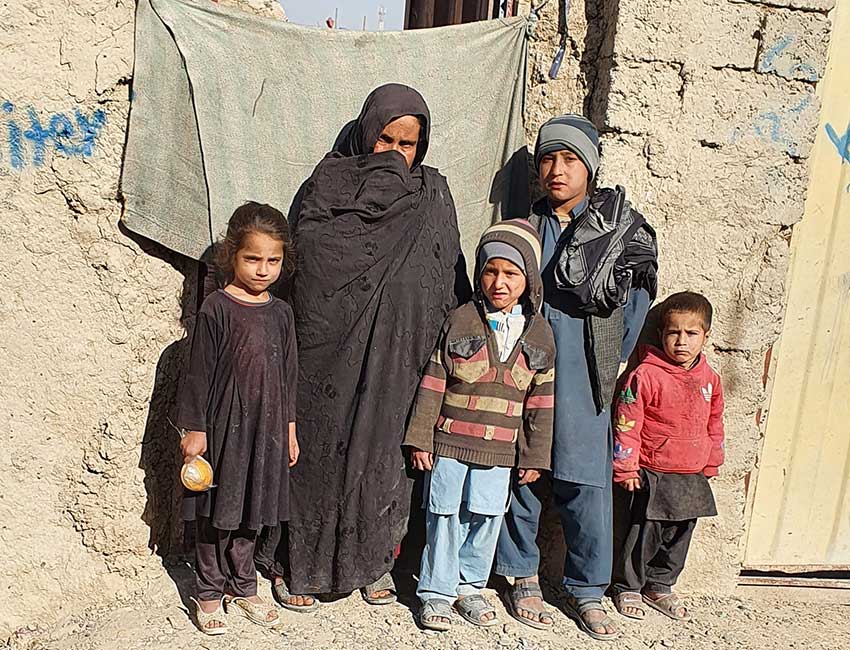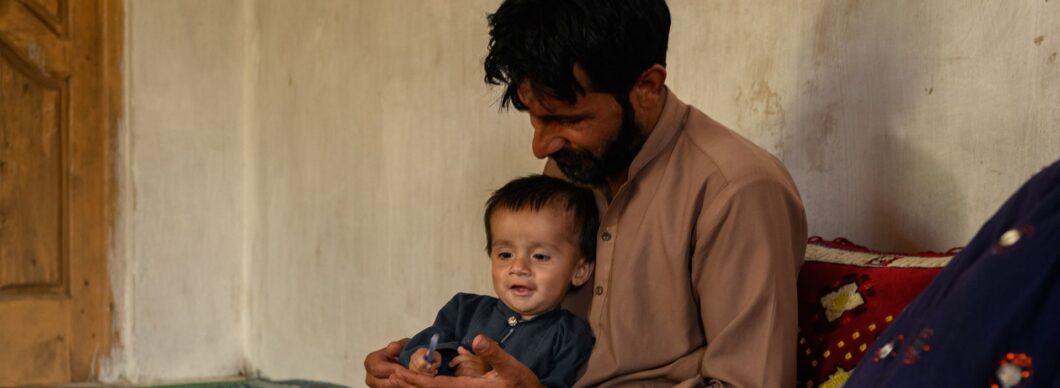Fatima is a 40-year-old widow living in Helmand, Afghanistan. Fatima, like millions of others across the country, has seen her life upturned over the last few years. Decades of conflict, Covid-19 and now the worst drought Afghanistan has seen in 27 years have collapsed the economy and caused a nationwide food shortage – plunging the population into widespread unemployment and hunger.
Fatima used to work in people’s homes cleaning and doing laundry – even cleaning the village’s toilets. But as she’s now waiting for treatment for a bad back, she’s no longer able to work and earn money for her family.
“It’s very tough and difficult for a disabled widow with seven young children having no source of income and no food to feed my children,” she says.
A lack of job opportunities and no way of buying or growing nutritious food have had a huge impact on her family’s health. Some of her children were working in a car workshop and a poultry shop, but have now lost their jobs because of the conflict and Covid-19.
“I have many hopes and wishes in my heart. The hopes I have are that a time will come where we will have enough food for my children, my children will sleep under a safe shelter, my children will have enough safe drinking water and my children will have good health.”
No money to buy food or essentials
62-year-old Gul also lives in Helmand with his wife and seven children. He uses a wheelchair, which makes it difficult for him to find work and support his family.
Gul started sending his young children out to work when they should’ve been playing, but it wasn’t enough to feed a family of seven. They received no support from relatives and had no valuable items they could sell.

“I have been living here for a long time. I have had tough times in my life such as disability, poverty, conflict and many more that are not even to be imagined,” he said. “We could not move anywhere due to our bad economic situation.”
The family benefited from a recent Action Against Hunger project that gave cash grants to families who were struggling to make ends meet during the pandemic. The money allowed families to buy food and essential medicines they couldn’t afford before.
“I can’t express my happiness for the assistance Action Against Hunger has given me and my family,” he said.
“I can’t describe how much it was helpful to us – we could get food to feed my family for at least two months.”
Struggling to find food
The situation has become so desperate that families across the country are going to extreme lengths to survive.
“People are starting to sell their children to buy food for their other children,” says mother of five, Zahra. Zahra’s husband was killed during the conflict and then their house was destroyed by a bomb. Scared for their lives, Zahra and her family fled the area and are now squatting in a ramshackle house in Helmand.
“The house I live in, a normal person would not live here. The rooms are in very bad condition,” she says. With no windows and holes in the walls, the house is open to snow and freezing winter winds.
The family have no way to earn a living and Zahra is struggling to find food for her young children. “I went to every house in our village every day, door to door asking please give us something for my children to eat but no one can help us. I have sold all of my household goods to feed my children.”
Action Against Hunger’s teams recently diagnosed Zahra’s children with severe acute malnutrition – the most dangerous form of hunger – and have put them on a course of nutrient-rich food supplements.
“Thanks to Action Against Hunger that helped us. Now my children are admitted in a nutrition programme. They have got medical support and I have got mental health support.”
How Action Against Hunger is helping
Action Against Hunger’s mental health and wellbeing projects help people like Zahra who have experienced the devastating effects of conflict and loss.
We run projects diagnosing and treating children for life-threatening hunger and help communities access safe drinking water. To help protect people’s jobs and access to food, we provide feed for livestock.
Our mobile health teams also travel to remote communities who struggle to access medical services to make sure no one is left behind.
But with winter coming, the scale of the crisis continues to grow. We need the help of our supporters more than ever to save the lives of people like Fatima, Zahra, Gul and their families.



